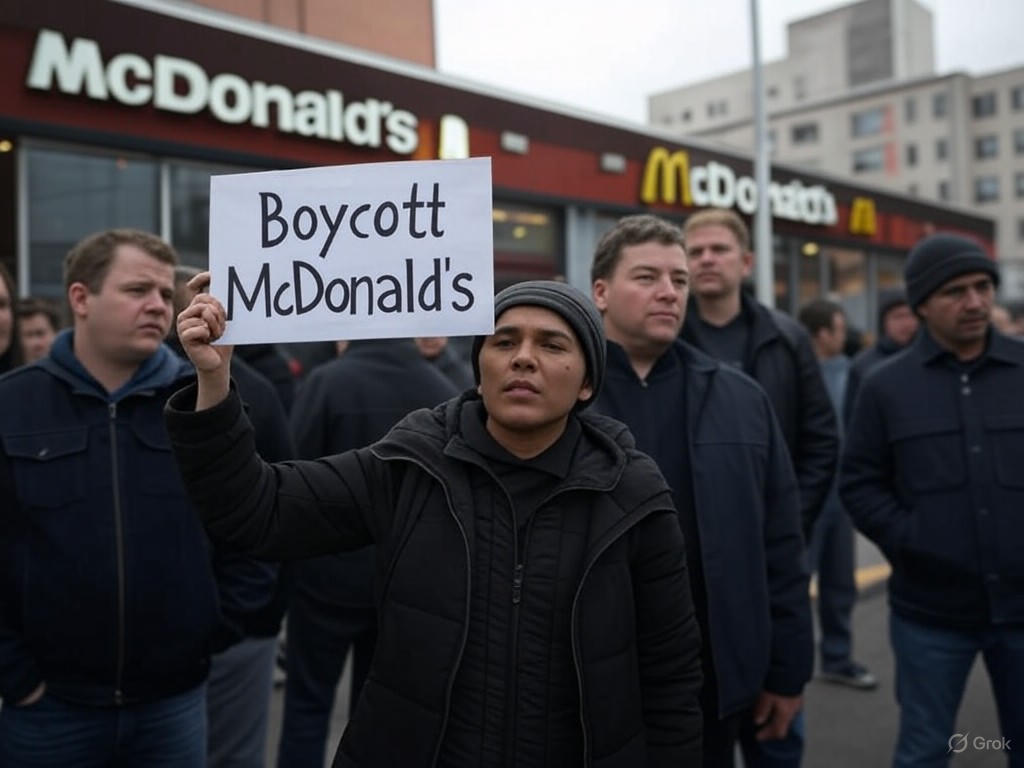A wave of activism is sweeping across the nation as the People’s Union USA, a prominent left-leaning advocacy group, ignites a fresh campaign targeting one of the world’s largest fast-food chains. This week, the organization has urged the public to skip their usual burger runs and join a boycott against McDonald’s, framing it as a stand against corporate greed and economic inequality. The group’s call to action is part of a broader ‘economic blackout’ initiative aimed at pressuring major corporations to address wage disparities and improve working conditions for employees.
The People’s Union USA argues that fast-food giants like McDonald’s have long profited at the expense of their workers, many of whom struggle to make ends meet despite the company’s billions in annual revenue. Activists point to stagnant wages, limited benefits, and unpredictable scheduling as key grievances that have fueled discontent among the chain’s workforce for years. By encouraging consumers to withhold their spending, the group hopes to send a powerful message to corporate executives: prioritize people over profits. Social media platforms are buzzing with hashtags and personal pledges to avoid the Golden Arches, as supporters share alternative dining options and local businesses to patronize instead.
This boycott isn’t just about McDonald’s, though—it’s a piece of a larger puzzle. The People’s Union has been vocal about its mission to disrupt the economic status quo, organizing similar actions against other industries in recent months. Their strategy hinges on collective consumer power, believing that coordinated boycotts can force companies to rethink their policies. Critics, however, question the effectiveness of such campaigns, arguing that short-term boycotts may not yield lasting change and could inadvertently harm the very workers the group aims to support by reducing business and hours. McDonald’s, for its part, has yet to issue a direct response to the boycott, though the company has previously highlighted efforts to raise minimum wages at corporate-owned locations and invest in employee training programs.
As the week unfolds, the impact of this boycott remains to be seen. Will enough consumers join the cause to dent McDonald’s bottom line, or will the fast-food titan weather the storm unscathed? Beyond the numbers, the campaign has already succeeded in reigniting conversations about labor rights and corporate accountability in the public sphere. For the People’s Union USA, this is a step toward dismantling systemic inequities, one skipped meal at a time. Meanwhile, everyday Americans are left to decide whether to drive past the drive-thru in solidarity or stick to their usual routines. Whatever the outcome, this protest underscores a growing tension between corporate giants and a public increasingly vocal about demanding change. The question now is whether this momentum can translate into tangible reform, or if it will fade as just another fleeting social media trend.
